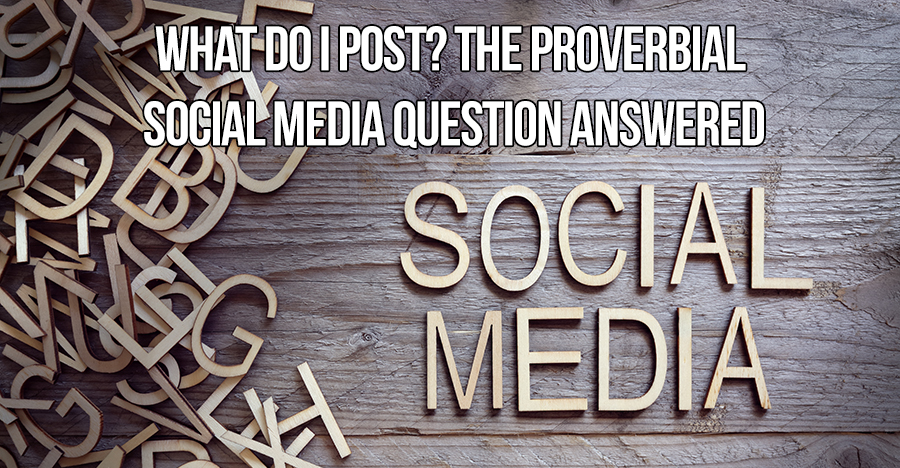SEO in 2014: It's Anything BUT Lean and Mean
Pardon the rant, but this must have been one of the days that reading sub-par content from so-called “industry executives” has me particularly disappointed. I recently read a blog that claimed to identify just a few, convenient, easy-to-understand KPI’s that would enable you to hold your SEO accountable. The problem is that the content published was, as I often find, at least two years outdated. KPIs, or “key performance indicators,” are so many that it’s better you have a basic understanding of what they mean rather than buy into some easily-sold formula presented eloquently enough to leave you convinced.
Just to be clear, in marketing today the term “SEO” refers to both the practice of Search Engine Optimization as well as someone who does the optimizing for search engines. It’s a verb, a noun and especially in this article, the title of one who serves in an SEO role.
I’ll take into account that the blog/article was strict to include only organic website traffic, which is fair – if they’re talking about the old-fashioned, keyword-reliant SEO from the days when metadata was passable as a website panacea and Google was only capable of matching up search queries with results as best it could.
 [1]Today Google runs on hyperthreaded intelligence mapping – more commonly known as semantic search. If your SEO is telling you that a well-arranged combination of keywords is the key, they’ve spent too much time filling out obsolete spreadsheets and not enough time keeping up with algorithms and an evolving Internet. Google search now understands semantics, the way that people naturally speak. If you have an iPhone in your pocket, go ahead and ask Siri if she agrees. Your “agreed-upon keywords” should be an expected, but very small, part of the picture. Those keywords should be used not just to write title tags and descriptions (without the keyword stuffing, please), because there’s a specific keyword density that all your content should maintain if you want it to rank and be of any value to your online presence… not website, your online presence. But your SEO now has to go further than searching for keywords and use common sense… what types of questions would someone ask to get the information you’re presenting without having a single common keyword in the query[2]?
[1]Today Google runs on hyperthreaded intelligence mapping – more commonly known as semantic search. If your SEO is telling you that a well-arranged combination of keywords is the key, they’ve spent too much time filling out obsolete spreadsheets and not enough time keeping up with algorithms and an evolving Internet. Google search now understands semantics, the way that people naturally speak. If you have an iPhone in your pocket, go ahead and ask Siri if she agrees. Your “agreed-upon keywords” should be an expected, but very small, part of the picture. Those keywords should be used not just to write title tags and descriptions (without the keyword stuffing, please), because there’s a specific keyword density that all your content should maintain if you want it to rank and be of any value to your online presence… not website, your online presence. But your SEO now has to go further than searching for keywords and use common sense… what types of questions would someone ask to get the information you’re presenting without having a single common keyword in the query[2]?

“Organic traffic to your website” was mentioned. This is, without a doubt, a good KPI if it’s taken into proper context and especially if it’s measured year-over-year. That said, your SEO should be just as concerned about your off-site properties and the social signals contributing to your online presence. Social signals? Yes – 1 out of every 5 pages viewed on the Internet are on Facebook[3], and Google and Facebook have buried the hatchet. How does that benefit (or detriment) you? Facebook is its own search engine now, and your Facebook page (yes, you need one) must be optimized for Graph Search. Even if your website doesn’t rank at the top, your Facebook page might, and a properly optimized Facebook page is a surefire way to get your brand noticed no matter whether it’s on a social platform or not. What matters is that you’ve implemented some snazzy custom tabs that are viewable on mobile devices, and contain the same brand information your prospective customer was searching for. Be it a business page on Facebook or your website, you have 8 seconds or less to make your first impression and help your visitor decide whether they should come to your website for more. Furthermore, 98% of consumers switch between multiple mobile devices in one day[4] when looking for a product or service, so tracking simply “organic traffic to your website” can be terribly misleading.
Another KPI that determined whether the accountability of your SEO was leads and sales from organic search. The problem here is that these are two completely different animals, no matter how much they live in the same zoo. If I’m a good SEO, there’s a good chance I recently ran a promotion in your PMA that brought you tons of traffic and leads… but they were in it for the prize or incentive, not because that many people just happened to be ready and waiting in the purchasing cycle when I ran the promotion. Was the promotion valuable? Of course – all those entries genuinely are leads, but they’re not sales. I’ve just created the existence of your brand in the minds of countless prospective customers, but their path to purchase may be 6 months away. In short, what I did for you this month may have exploded your brand awareness, boosted your rankings and garnered you leads, but according to the science of SEO, which it very much is, you may not see the effects of my hard work in your cash register for months. It’s no less valuable than putting money in your pocket right now, but leads do not equal sales and there are too many confounding variables between devices used and platforms visited to accurately measure the long-term value of true SEO done for you now.
 So, what really matters? For one, you’d be better able to determine whether a spike in organic traffic was due to an off-site promotion if you looked at your referral sources, other websites and pages that sent visitors to your website. If I take that a step further and want to really measure “leads and sales from organic search,” I might be clever enough to provide every promotion participant a unique promotion code exclusive to the sale, even or contest. That’s the most reliable, empirical way to know whether even your referral traffic is converting into sales.
So, what really matters? For one, you’d be better able to determine whether a spike in organic traffic was due to an off-site promotion if you looked at your referral sources, other websites and pages that sent visitors to your website. If I take that a step further and want to really measure “leads and sales from organic search,” I might be clever enough to provide every promotion participant a unique promotion code exclusive to the sale, even or contest. That’s the most reliable, empirical way to know whether even your referral traffic is converting into sales.
93% of consumers who use mobile devices in their search for a product or service go on to make a purchase[5]. A surprising statistic, and I admit even I have nothing more than theories to explain why the use of a mobile device has such a drastic impact on conversion… but you’d better know how much mobile traffic you’re getting. Now that we’ve touched upon both cross-device and cross-platform behavior, it’s a good time to mention that even Google Analytics has released its own cross-platform tracking.[6] Some of the largest providers have developed their own tracking software to know whether those 6 visits to 3 of your digital properties yesterday were all from the same user or not. Imagine that – never having another “anonymous” website visitor, and being able to tailor everything to what you know makes them tick.
Did your SEO mention demo graphics or psychographics? They’re both very common but critical KPIs, now more readily-available than ever before, but overlooked by most providers most of the time. Do the demo- and psychographic statistics match the “buyer persona” most optimal for what you sell or provide? Personally, I want to know the answer to this question just as much as I’d want to know how my year-over-year traffic compares – because I certainly wasn’t running the same SEO tactics last year that I should be running now.
graphics or psychographics? They’re both very common but critical KPIs, now more readily-available than ever before, but overlooked by most providers most of the time. Do the demo- and psychographic statistics match the “buyer persona” most optimal for what you sell or provide? Personally, I want to know the answer to this question just as much as I’d want to know how my year-over-year traffic compares – because I certainly wasn’t running the same SEO tactics last year that I should be running now.
The blog was right about one thing – a client should have access to all data, not just the KPIs and metrics the SEO selectively chooses to show. Truth be told, most clients don’t want access to a platform like Google Analytics, which, in all its simplicity can still seem intimidating to someone who’s never seen it before. It is, however, the best if not only way to take charge of your performance and results, and subsequently to decide whether you’re getting what you pay for from an SEO. If you have poor online performance but are asking yourself “What SEO? I haven’t hired an SEO…” then there’s your first course of action. Find one and then use this article to determine whether or not s/he is the right one for you!
[1] http://semanticommunity.info/AOL_Government/Semantic_Search
[2] http://gigaom.com/2013/09/22/the-great-shift-in-search
[3] http://www.zdnet.com/blog/facebook/facebook-accounts-for-1-in-every-5-pageviews/8491
[4] http://services.google.com/fh/files/misc/multiscreenworld_final.pdf
[5] http://www.wompmobile.com/blog/google-and-nielsen-how-mobile-is-the-path-to-purchase
[6] http://www.iprospect.com/google-launches-estimated-cross-device-update










